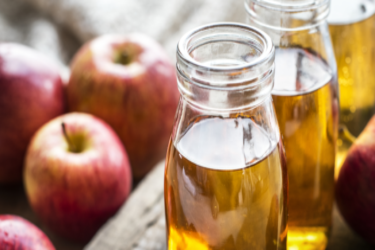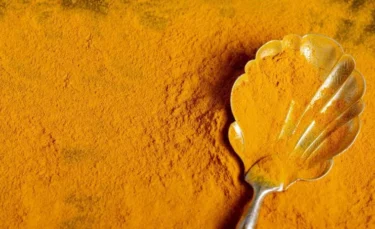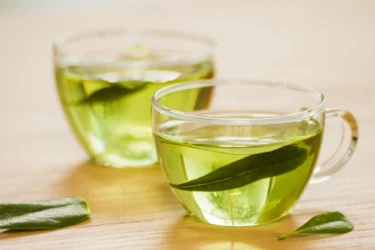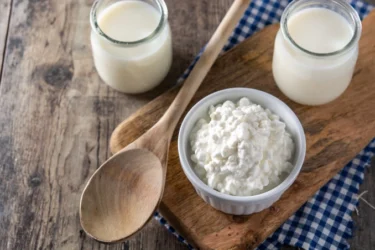What Causes Sulphur Burps and How To Stop Them
By Dr. Ashish Bajaj +2 more

Get,

to manage your symptom
Get your,


4 Cr+ families
benefitted

OTP sent to 9988776655



You’ve successfully subscribed to receive
doctor-approved tips on
Whatsapp

Get ready to feel your best.

Hi There,
Download the PharmEasy App now!!


Register to Avail the Offer
Send OTPBy continuing, you agree with our Privacy Policy and Terms and Conditions

Hi There,
Sign up on PharmEasy now!!
Trusted by 4 crore+ families

OTP sent to 9988776655



You have unlocked 25% off on medicines




Code: NU25
By Dr. Ashish Bajaj +2 more
Table of Contents
Burps may sometimes have a foul smell like that of rotten eggs, which is not just unpleasant but can be embarrassing if you’re in a social setting. Termed sulphur burps, these can have several causes ranging from digestive problems to food sensitivities. Through this blog, we’ll uncover the science behind them, examine their causes, ways to manage them and tips on how to prevent them from happening. We will also explore effective home remedies, medications and lifestyle shift that could offer relief from sulphur burps.

Did you know?
Burping occurs when gas from the digestive system is released through the mouth. Gas forms when we swallow air while eating or drinking. Certain food types also lead to gas production when they’re broken down by stomach bacteria. These gases include nitrogen, carbon dioxide, oxygen, hydrogen and at times, methane1.
Gas build-up in the stomach or oesophagus needs a way out to lessen pressure on the digestive system. Most times, this release results in burps. An average person burps around 13 to 21 times a day, which is considered to be normal2.
So, what makes sulphur burps different? They have a distinct bad egg smell. This smell comes from hydrogen sulphide gas which forms when sulphur-rich compounds in the digestive system break down. Foods with high sulphur content, bacterial infections, GERD and bowel diseases often cause sulphur burps.
In my opinion, a person should consult a physician if they have sulphur burps more than three days a week. This might indicate the presence of an underlying illness that requires medical attention. Nevertheless, a few dietary and lifestyle adjustments might help lessen or completely eradicate sulphur burps11.
Dr. Siddharth Gupta, BAMS, MD (Ayu)
Sulphur-rich foods play a role in creating hydrogen sulphide gas in our digestive system. Which foods are these? They include high-protein foods like chicken, beef, beans, legumes and fish. Also, eggs, cheese and whole milk.
The bacteria in your gut break down the sulphur compounds in these foods during digestion. This process produces hydrogen sulphide gas which ends up causing smelly burps3.
Other issues that may cause or be associated with sulphur burps include:
If you experience excessive belching or frequent sulphur burps, you should speak with a doctor. This may be a sign of an underlying condition that needs specific treatment.
Walking is one activity that may facilitate faster passage of gas through your digestive system and relieving sulphur burps. In my opinion, one should indulge in some form of daily physical activity to keep sulphur burps at bay12.
Dr. Rajeev Singh, BAMS

Drinking enough water may help decrease belching, eliminate morning bad breath and improve a person’s overall health.

Manuka honey is a medically active honey harvested from the tea tree family. It may help relieve digestive symptoms and fight off potentially infectious bacteria in the gut, which can help reduce sulphur burps4.

Apple cider vinegar is another ingredient that some people use to help balance their digestive system and reduce symptoms of digestive disorders. The acetic acid in the vinegar is believed to help keep gut bacteria from overgrowing. That said, further research is needed to confirm these claims.

If burps smell like sulphur, adding more gas to the mix may cause more foul-smelling burps. Reducing carbonated drinks, including soda and sparkling water, may help cut burps.

Sugar may be another contributing factor for sulphur burps as it feeds the bacteria in the gut that causes hydrogen sulphide gas to build up. Avoiding sugary foods may be enough to reduce symptoms in some people5.

The release of sulphur gases may result from the digestive system breaking down a large or protein-rich meal. Reducing portion sizes or eating more slowly may help reduce these digestive issues.

Processed food is usually high in preservatives. It may include packaged foods, canned goods, or fast foods. The high level of preservatives may worsen digestive symptoms and sulphur burps. Cutting out processed foods from the diet may help improve the digestive system.

Turmeric is a common spice with known anti-inflammatory and digestion-promoting properties. Using turmeric in your diet can improve digestion and may help lower gas production. This may help reduce sulphur burps6.



While research on the effectiveness of these home remedies in management of sulphur burps is limited, yet these options seem promising due to the beneficial effects they have shown on improving digestion and gut health.
If home remedies and dietary changes aren’t giving you enough relief, ask your healthcare provider if antacids or gas-relief medications could be a solution for your sulphur burps9,10.
Gas relief meds reduce the formation of gas or allow it to pass quicker through the gut system, lessening chances of sulphur burps. These can include:
If you have frequent sulphur burps along with heartburn or digestion issues, antacids may be the right choice for you. Antacids help by neutralizing stomach acid and include the following as main ingredient:
If these don’t work, antibiotics, prokinetic medications (Tegaserod, Octreotide) or stronger acidity medications (H2 receptors blockers such as Ranitidine, Cimetidine or Proton Pump Inhibitors such as Omeprazole, Pantoprazole etc.) may be prescribed by your doctor to deal with your gas issues.
Your doctor will decide on these medications based on the underlying cause and your specific needs.
Also Read: Simple Positions To Relieve Gas and Bloating Naturally
If sulphur burps are frequent, that is, if you experience persistent burping more than three times per week, and they come with other symptoms like stomach pain, diarrhoea, or vomiting, it’s important to see a healthcare provider.
They will conduct a proper check-up and diagnose the cause. They might also order tests to identify any underlying gut issues causing your sulphur burps. Management options may include drugs, dietary changes, or other interventions based on the specific diagnosis.
Also Read: Feel Like Throwing Up? What You Should and Shouldn’t Do According to Doctors
Sulphur burps can be an uncomfortable and socially awkward condition due to their foul smell. However, understanding the causes and finding the right treatments can improve your digestion and quality of life. Simple home remedies, diet changes and lifestyle tweaks can help manage and reduce the occurrence of these unpleasant events. However, if they persist or come with other alarming symptoms, it’s crucial to see a healthcare provider for a proper diagnosis and treatment plan.
Also Read: What Causes Fingernails to Split Down the Middle?
Generally, sulphur burps are harmless. But if they are frequent or come with other symptoms, they could indicate a digestive issue requiring medical attention.
Not necessarily. However, frequent or persistent sulphur burps combined with other stomach issues like abdominal pain, loose bowel motions, or vomiting may point to an underlying health problem needing medical attention.
If you’re having lots of sulphur burps not reduced by diet changes or home remedies, you should seek medical advice. Also, if sulphur burps come with more alarming symptoms like stomach pain, loose bowel motions, or vomiting, it’s critical to consult your healthcare provider right away.
Sulphur burps typically last from a few hours to a couple of days, depending on their cause. Persistent sulphur burps might indicate an underlying digestive issue and should be evaluated by a healthcare provider if they continue.
Milk may provide temporary relief for sulphur burps by soothing the stomach lining, but it does not address the underlying cause. If sulphur burps persist, it’s best to consult a healthcare provider to identify and treat the root cause.
Yes, sulphur burps can result from food poisoning, as certain bacteria involved in foodborne illnesses produce sulphur-containing gases. If you suspect food poisoning, it’s important to seek medical attention.
Sulphur burps can be accompanied by vomiting, especially if they are caused by gastrointestinal issues such as infections or food poisoning. If you experience severe or persistent symptoms, it’s important to seek medical attention.
Sulphur burps can sometimes be associated with diarrhoea, especially if they are due to gastrointestinal infections or digestive disturbances. These conditions can lead to increased bowel movements and diarrhoea as part of the body’s response to eliminate toxins or pathogens. If symptoms persist or worsen, it’s advisable to consult a healthcare provider.
Sulphur burps are not typically a direct sign of gallbladder problems. They are more commonly associated with gastrointestinal issues like indigestion or infections. However, persistent digestive symptoms should be evaluated by a healthcare provider to rule out any underlying conditions, including those related to the gallbladder.
No, sulphur burps themselves are not flammable. They are primarily composed of hydrogen sulphide gas, which is not flammable at the concentrations typically found in burps. However, hydrogen sulphide can be flammable at very high concentrations and under specific conditions, but this is not relevant to normal sulphur burps.
Sulphur burps are generally not a direct sign of pancreatitis. They are more commonly associated with digestive issues such as indigestion or gastrointestinal infections. However, persistent or severe symptoms should be discussed with a healthcare provider for proper evaluation and diagnosis.
Disclaimer: The information provided here is for educational/awareness purposes only and is not intended to be a substitute for medical treatment by a healthcare professional and should not be relied upon to diagnose or treat any medical condition. The reader should consult a registered medical practitioner to determine the appropriateness of the information and before consuming any medication. PharmEasy does not provide any guarantee or warranty (express or implied) regarding the accuracy, adequacy, completeness, legality, reliability or usefulness of the information; and disclaims any liability arising thereof.
Comments

Leave your comment...
You may also like
Comments